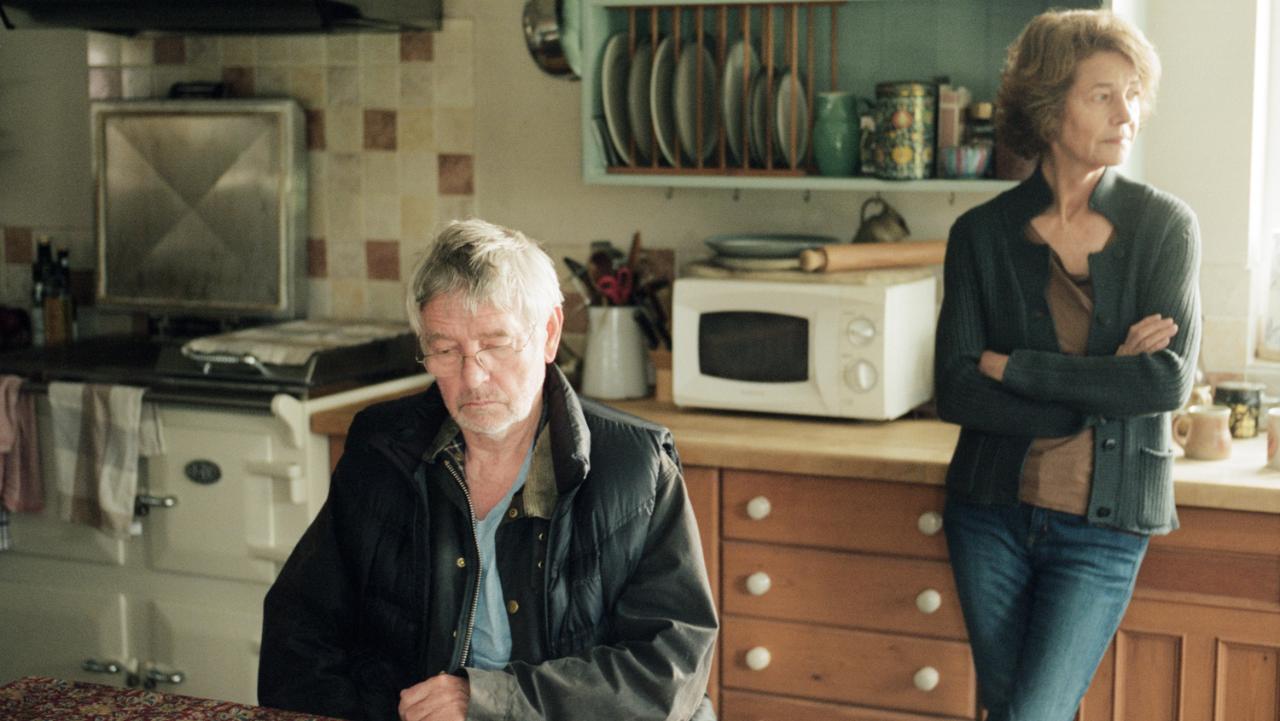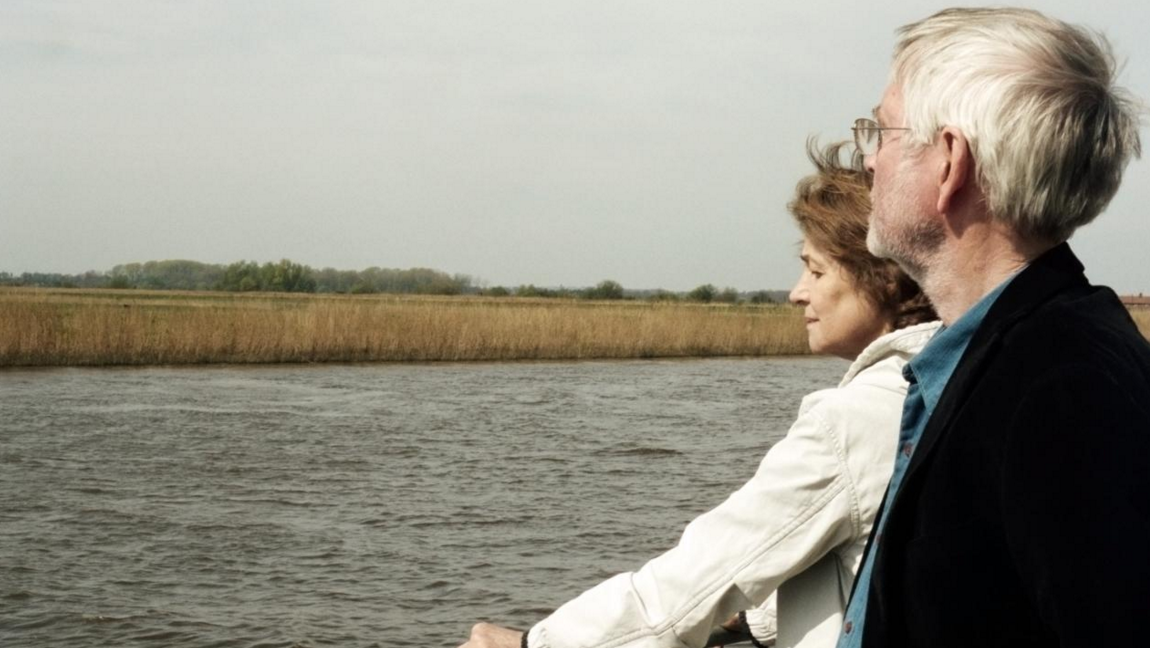Long-term.
Every now and then a film comes along with such a command of its material and such insight regarding the concepts it tackles that it renders all other films momentarily empty in your awareness by comparison. 45 Years is the new film by Andrew Haigh and it’s ostensibly about a marriage shaken by a startling revelation. It’s also about love and about time and about choice and about our perceptions of relationships and about life. To assert that a film is about life is as pompous as it is unclear but 45 Years is one of those films with such startling comprehension that it gets under the skin of some intangible sentiment that somehow pertains to life. It’s the sort of film that engenders understanding but not an understanding of what we’re understanding.
Kate (Charlotte Rampling) and Geoff (Tom Courtney) have been married for forty-five years, almost. It’s five days before their wedding anniversary; they didn’t manage to celebrate their fortieth because of Geoff’s health so are, or Kate is, in the process of organising an extravagant party. And then Geoff receives a letter from Germany telling him that the body of an old girlfriend, Katya, who plunged to her death in the Swiss mountains in 1962, has been found. Kate was aware of Geoff’s history with the woman but is startled by his agitated reaction to the news.
Is it the notion of romance versus the reality of romance – a romance ended through fate, literally frozen in time, that could affect the looming party, itself a celebration of perceived romantic accomplishment? It is that and it’s also an insight into marriage and old age but those elements are fundamentally narrative vessels for pursuing more ambiguous, and far more compelling, concepts. Rarely has the notion of passing time been conveyed with such elegance, such melancholy and such sentimentality, all at once. Maybe never.
Everything has a double meaning and everything is open to interpretation. There’s a scene early on in the film in which Kate bandages up Geoff’s hand. We don’t know whether his explanation for the wound is the truth or whether it occurred because he was climbing up to the attic, eager to go through old photographs. But then, it’s natural not to share everything with your partner. There are many tender scenes that could be translated cynically depending on one’s impression of Kate and Geoff’s relationship. Haigh never offers any clarity. If he had then the film would have just been about Kate and Geoff rather than about all of us.
Time dominates the film. Clocks are always nearby. Kate stands outside a shop window gazing at a watch that she might buy Geoff for their anniversary. Both times, the town clock rings in the distance. She doesn’t end up buying him the watch, and tells him on their way to the party. “I like not knowing the time,” he replies. And the present and the past are interlaced. They listen to songs from their past, the songs that remind them of their early days. But they’re also the songs that would have punctuated Katya’s relationship. Even the casting of Rampling is crucial to this hazy sense of time, her face so striking it’s difficult not to be reminded of her younger self through the beauty she still retains. Clocks as visual and auditory motifs are popular amongst film directors, from Wong Kar Wai to Ingmar Bergman. In 45 Years, the clocks are going backwards just us much as they’re going forwards. If a women who died over forty-five years ago can affect a strong marriage then maybe Geoff is right and there’s just no point in knowing the time.
It would take more than one viewing to appreciate Haigh’s meticulous mise-en-scène. Rampling and Courtney’s performances establish Kate and Geoff’s relationship in a certain way and their environment reinforces it. The cinematography by Lol Crawley manages to express years of a relationship without words. The objects that occupy Kate and Geoff’s house do the same. It might take this film to wonder whether the doona and pillow covers in all other films feel lived in at all. The relationship is a real one and our impression of it is dictated by how we understand the nature of such a longstanding interaction.
Katya, perfectly preserved physically and in Geoff’s mind, threatens a seemingly solid relationship decades after her death. Kate wants to ask Geoff questions but doesn’t know if she really wants the answers. 45 Years reminds us that even a long-term relationship can be a lonely game. If that sounds mournful concept that’s because it is, but for all the sadness, Haigh’s film emerges more pensive than gloomy. It’s not too much to repeat that 45 Years is about life, because it’s the rare sort of film that occupy your thoughts relentlessly. You know it pertains to you somehow, but you’re not quite sure how.
10/10
For more Reviews, click here. If you’re digging ReelGood, sign up to our mailing list for exclusive content, early reviews and chances to win big!


